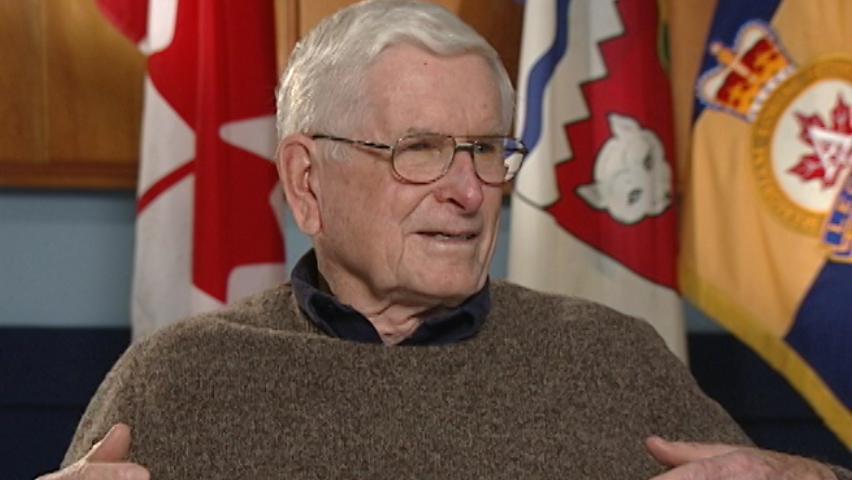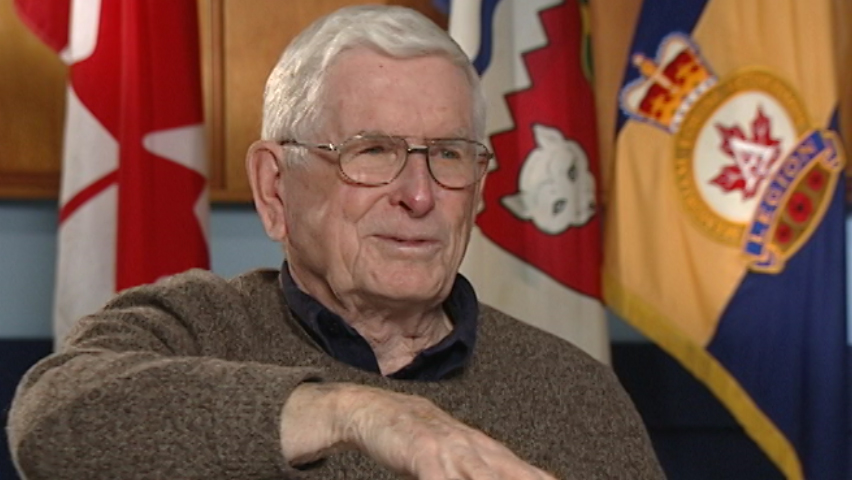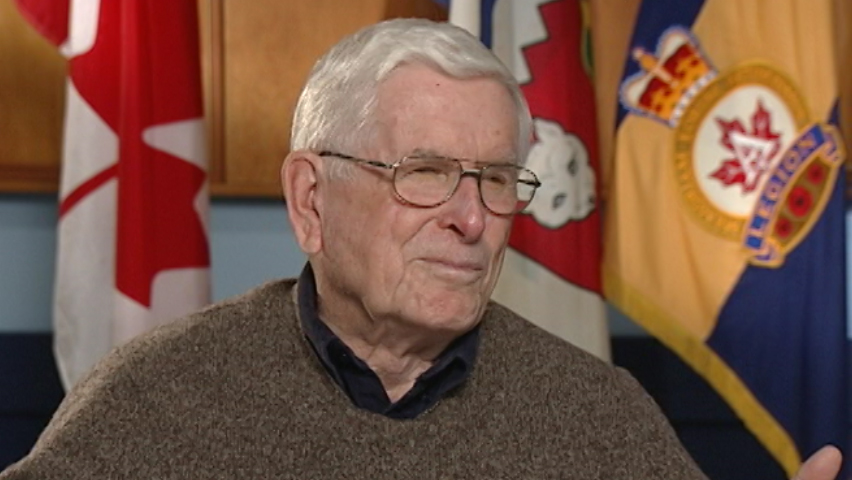After he was shot
Heroes Remember
After he was shot
Transcript
And we had a bunch of wounded there, but I guess because I was,
well I was shot through the chest so, so they loaded me up
and I went out to a, I was conscious all the time. The first,
well they'd run out of morphine and all the rest of it so,
I was, I was conscious and I was on that thing and I remember
getting to the, to the field dressing station on a stretcher.
And one of the things ah, well, I was, I was laying on my side
trying to pull this guy in and, and the bullet went in on my back
very low down about my belt and came out right under my
breast right there and one of the things I always told you in a,
in a stomach it pierced my stomach too, that you would
be terribly thirsty. And that was one of the things I remember is
that terrible thirst. Oh God, it was just...
I was on a stretcher. It was just on one of those canvas
stretchers with no clothes on between two woolen blankets
for almost three weeks. I was at this field dressing station
and they, they did something. I don't know, I don't know what
the sequence of events other than I've seen some of the
documentation on it, but ah they patched me up somehow or other
there and got you know sewed me up and all the rest of it.
And there were no nurses there, it was like a MASH unit
without nurses and so on. There were orderlies and the doctors
I guess and so on, but I was on that stretcher from the eighth
of March until about the twenty-third of March being moved around
in various places and, and I wasn't they sent the wounded
then back to England. Unless you were, you weren't badly
wounded then they didn't send them back to England, but if there,
most of the wounded went back to England. Well, I didn't get sent
back to England because they didn't think I was gonna survive.
I think that's the reason, I don't know that for sure,
but I was unconscious most of the time. I had times I wasn't
and one of the things you knew, you instinctively knew in there,
that there was one area that they, they put the dying in.
Ones they couldn't do anything for and so they put them in,
and I was in that section for a while. I, I remember that
and I wouldn't, I wouldn't die and they had to take me back out.
And finally I, we, we were loaded on a DC3 and sent back
to England. And that was the first time that, well, I went
to a hospital and there was white sheets and nurses
and all the rest of it and they, and I was dirty. Christ, we had
been fighting for a week or more, I was dirty, I was covered with
blood, or you know, dried blood and all the rest of them
were just taking me off the stretcher and I said to the nurses,
"God, don't put me on that clean sheets," you know.
"Clean me up a little bit first." And they were just saying,
"No, no, now we'll put you in there, we'll clean you up,
we got lots of sheets."
Description
Mr. Carter talks about what happened after he was shot and how he was put in an area where you were suppose to go to die.
Gordon Carter
Mr. Carter was born in 1924, and grew up on a farm 30 miles outside of Sault Ste. Marie, Ontario. He joined the Canadian Army in 1943. While in combat in Holland, he was wounded and was not expected to recover from his wounds. Mr. Carter tells us what it was like to be at war and what happened the day he was shot by a sniper.
Meta Data
- Medium:
- Video
- Owner:
- Veterans Affairs Canada
- Duration:
- 04:33
- Person Interviewed:
- Gordon Carter
- War, Conflict or Mission:
- Second World War
- Location/Theatre:
- Europe
- Branch:
- Army
- Rank:
- Private
- Occupation:
- Driver
Related Videos
- Date modified:





